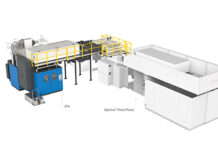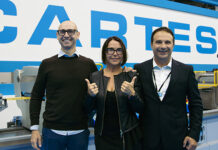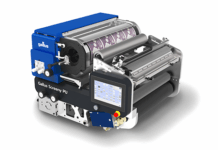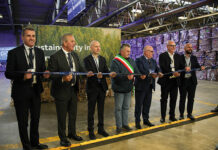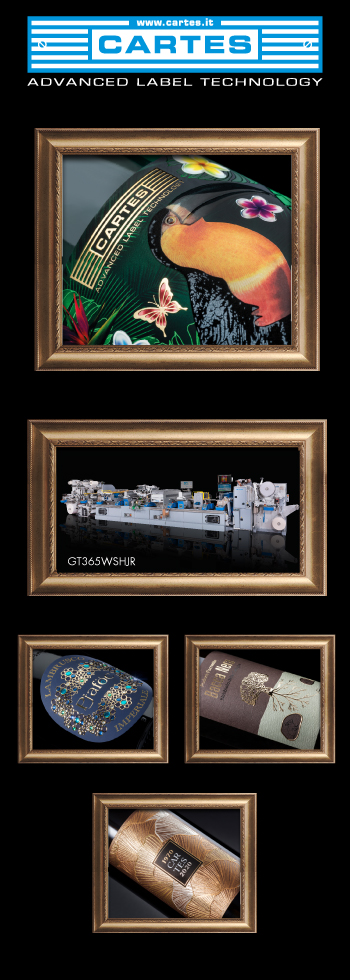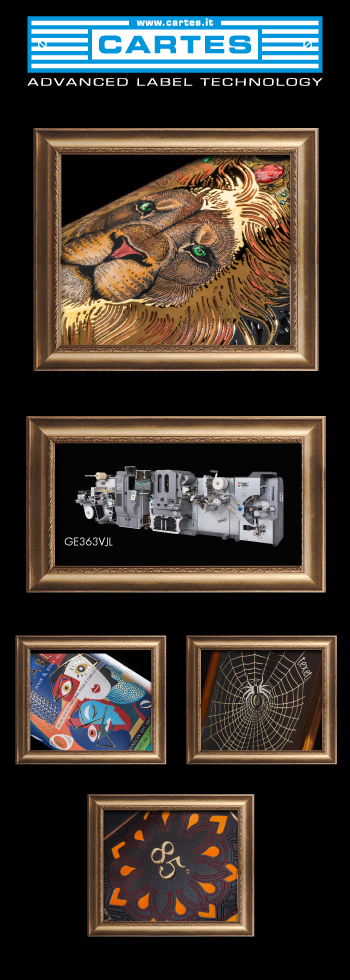As one of the fastest growing segments in the label market, shrink sleeves represent the third most important label format after pressure-sensitive and wet-glue labels. According to Smithers, the global market share of all types of sleeve labels will grow annually by 6.9% in the period 2019–24, making it the highest growth type among all label formats.
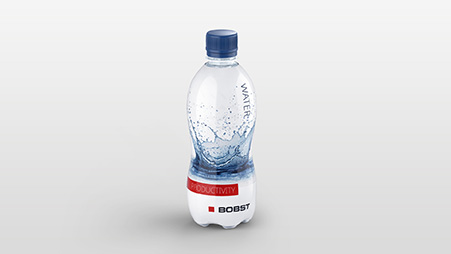
Shrink sleeves are full-color labels that cover the entire surface of the container, offering 360-degree graphics for branding and messaging. They are printed on special filmic substrates that with the application of heat shrink to wrap around the shape of the container. End use application is found predominantly in the food and beverages, but have spread throughout the pharmaceutical and nutraceutical, toiletries, health & beauty, and industrial and household cleaning segments.
Market drivers and sleeve benefits
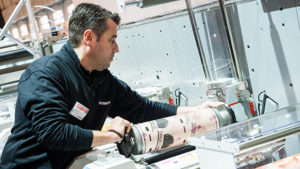 There are several reasons behind the steep growth of shrink sleeve labels. The main market driver is the high marketing impact. Consumers like variety, both in the packaging and in the packaged products, and for brand owners sleeve labels is an effective way to diversify products and flavours through their very distinctive shelf appeal. The labels are also highly adaptable and will fit differently shaped containers, irrespective of the material they are made of, be it plastic, glass or metal. The premium shelf appeal of shrink sleeve labels enables brand owners to engage with consumers in new ways and also offers the opportunity to revitalize existing products.
There are several reasons behind the steep growth of shrink sleeve labels. The main market driver is the high marketing impact. Consumers like variety, both in the packaging and in the packaged products, and for brand owners sleeve labels is an effective way to diversify products and flavours through their very distinctive shelf appeal. The labels are also highly adaptable and will fit differently shaped containers, irrespective of the material they are made of, be it plastic, glass or metal. The premium shelf appeal of shrink sleeve labels enables brand owners to engage with consumers in new ways and also offers the opportunity to revitalize existing products.
In addition to the excellent visual impact, another important feature is the tamper-evident function of shrink sleeves: the container simply can’t be opened without tearing the film, so the consumer can be assured that the container has not been opened ahead of purchase.
Sleeve films are strong and durable, delivering increased protection from impact and other damage during shipping and handling. It also protects the product from any moisture and temperature variations. Because the design is printed on the inside of the sleeve, it is easy to ensure that the quality of printing and the vibrancy of the colors remain intact.
Importantly, shrink sleeves labels can be completely removed from the bottle or container, which can then be recycled. Returnable bottle can be de-sleeved easily, as unlike the more traditional types of labels, the sleeve is not glued to the bottle.
Printing shrink sleeve labels
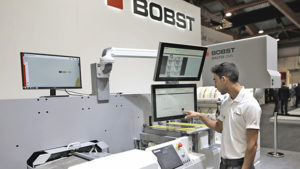 For converters seeking to diversify and grow their business, shrink sleeves represent new market opportunities.
For converters seeking to diversify and grow their business, shrink sleeves represent new market opportunities.
The preferred method of printing depends on the requirements of the label. They range from gravure for very long runs, to flexographic and digital printing for short to medium runs. BOBST has solutions that meet the demand for all run lengths, including analog printing methods – gravure, CI and inline flexo – as well as digital technology.
Particularly well suited to this type of label is inline flexo printing, which can add greater value to shrink sleeve production due to the many embellishment options available on press. Multiple processes can be added and carried out in a single pass for faster production and less waste.
High impact embellishments can be added not only with cold foil and cast & cure techniques, which offer decoration for premium products, but also by creating other special effects with the well-engineered solutions for value-added coatings offered by BOBST’s machines. These can be either silkscreen or flexo applied and include tactile varnishes.
BOBST’s multi-substrate presses guarantee perfect registration on unsupported heat-sensitive filmic substrates. This is a must to ensure repeatable and consistent high-quality printing and minimize waste.
Another important aspect of shrink sleeve label printing is the white ink layer, which is added to generate contrast and boost the visual impact of the artwork. Printed as the final background color, it requires highly efficient curing or drying technology.
BOBST DigiFlexo technology, using BOBST oneECG 7-color Extended Color Gamut process, is perfect in the short to mid-run arena where neither conventional printing processes nor digital print can compete in terms of quality, efficiency and profitability.
In addition to inline UV flexo printing, BOBST inline hybrid printing technology, that offers the best possible combination of DigiFlexo and Mouvent Cluster head digital technology, can also be applied to shrink sleeves production. This solution can combine the flexibility of the digital section with the cost efficiency of a flexo white, and even generate extra added value with a functional varnish.
The growth potential of shrink sleeve labels is significant and offers virtually limitless market opportunities for converters. BOBST DigiFlexo inline presses with their multi-process capabilities and digital automation features are best placed to support converters entering this market. This wider range of solutions make production of added of value shrink sleeve labels profitable, from short runs and upwards.




